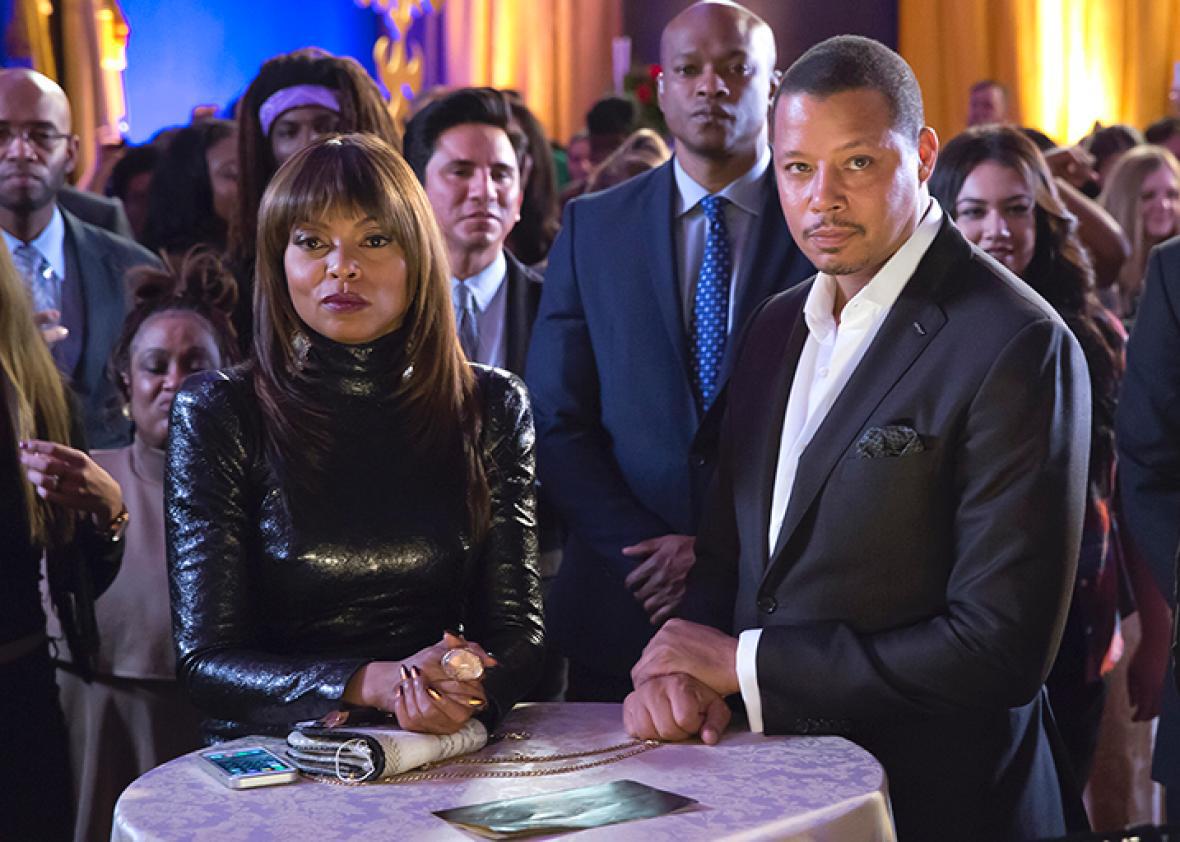Perhaps the No. 1 response you can expect to get from an insider about why Hollywood remains a mostly white person’s game is that non-white faces “don’t sell” overseas. Which is code for: Hollywood isn’t racist—the rest of the world is. And Hollywood is, first and foremost, a business. That last part, at least, is definitely true. But are international audiences really inherently turned off by stories about people of color?
Enter Hollywood Reporter’s latest, bizarre investigation into the topic of diversity, in which some prominent studio executives and industry insiders speak about how non-white stories are bad for global business. “Empire Flops Overseas as Foreign Viewers Resist Hollywood’s Diversity Push,” reads the doomsday headline, effectively announcing that inclusiveness = the end of the (white) world as we know it. Writer Scott Roxborough sets up the perfect bait and switch in his opener: American studios are greenlighting shows with inclusive casts in record numbers, he writes. A Sony Pictures TV casting director is quoted as saying that color-blind casting has arrived; “Now it’s just who is the best actor for the role.” (This is a naïve, slightly troubling way of looking at this, as I’ve expounded on before, but whatever.)
Lovely, right?
Lest you think that this is a great thing for television, don’t get too excited—in the next paragraph, Fox’s international TV president Marion Edwards promptly craps all over those positive vibes. “These shows are a reflection of our society, but [they are] not a reflection of all societies.” And later on in the piece, Edwards adds: “We are telling our units that they need to be aware that by creating too much diversity in the leads in their show means … problems having their shows translating to the international market.”
“Too much diversity,” eh? This has a whiff of “The Year of Ethnic Castings—Too Much of a Good Thing?”, a Deadline piece that also ever-so-graciously cautioned Americans against embracing non-white stories. Edwards’ quote is telling and more than a bit worrisome because, unlike a Deadline journalist, she’s actually got leverage in the industry—she can and, by her own admission, is, reinforcing the belief that America’s best and only lucrative cultural export is that of a white face. Undoubtedly, she is not alone in thinking such things—Don Cheadle, who’s discussed his upcoming Miles Davis biopic and his need to cast a white actor in a secondary role in order to get the film off the ground, recently told me as much: “I also know people, that when they go around and sell these movies that that is a story—I don’t know how you can prove it quantifiably, that you need [a major white character] in order to make the movie go, but I know that’s the story.”
Welp, the Hollywood Reporter piece has the numbers! And they don’t look good. Roxborough details what makes Empire a “global flop”: In the UK, the first season brought in a “middling” 717,000 viewers, and the second season “has been worse” thus far. Australia, Canada, and Germany haven’t been feeling it, either, he reports. But what the article and those quoted in the article fail to specify, with the same attention to detail as is demonstrated here with Empire’s ratings, is how other American shows with predominantly white casts are doing abroad in comparison. Apparently, it’s better to just focus on the the likes of Empire, because they are the exception to the rule—they’re doing it wrong, merely by existing.
Weirdly, and somewhat to its credit, the piece does a surprising 180 in the last half, and offers more solid counterarguments for why a show like Empire isn’t doing well abroad. Roxborough writes, “American series simply aren’t as popular as they used to be,” citing increased competition from countries that are increasingly producing more of their own content at home. (A quick look at the U.K.’s Broadcast Audience Research Board stats for top 30 shows in various months throughout 2015 reveals as much, save for fare like the inexplicable juggernaut The Big Bang Theory, the relatively diverse The Walking Dead, and comic book-themed Gotham.) Even Edwards admits that shows with diverse casts like NCIS and CSI have done huge business globally. Roxborough also quotes an African American studies professor who points to the success of Roots and The Fresh Prince of Bel-Air as shows with black characters that have found success abroad. And yet still, that professor manages to conclude that perhaps the problem isn’t necessarily diverse faces on screen, but the kind of diverse stories being told—a show like How to Get Away With Murder, in which the stories aren’t “ethnically specific,” sell better overseas than a show like Empire, unabashed in its blackness.
The most salient points of all are presented as an afterthought. A head of drama at one of Germany’s commercial networks narrows down the theory even more: “Almost everything is serial, with long multi-episode story arcs, [and] that doesn’t work for us.” This seems like the real issue to contend with here, but instead THR frames the failure of Empire and other diverse shows in global markets as matters of international racism. In centering this piece around Empire’s diversity and avoiding singling out how other predominantly white shows are also faring overseas, this piece can continue to promote the silly idea that white is the impenetrable, beloved default for cultural exports abroad.
